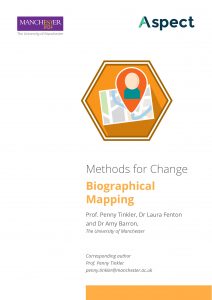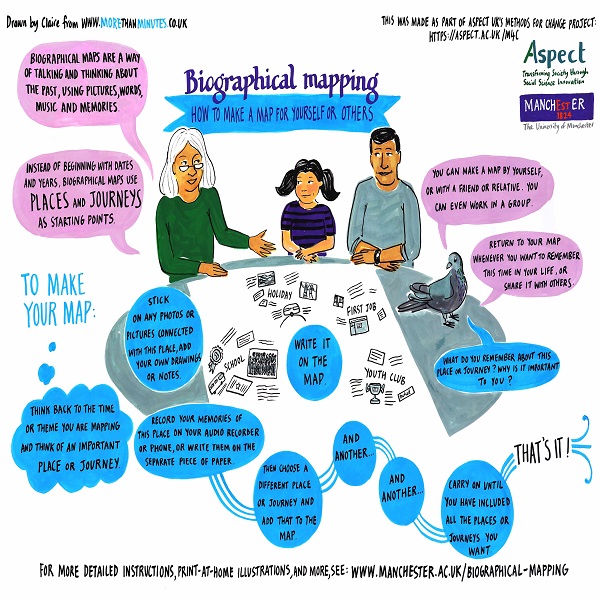Biographical Mapping involves using a combination of pictures and texts to represent past experiences and functions as a tool for reflection and talk. It involves the creation of a visual map of places, journeys, trips and a few words about why they are meaningful. The map can include drawings, diagrams, personal photographs or downloaded ones, routes and maps.
Social scientists from the Methods for Change project came together to discuss the research methods they use and how methods create change in society. Drawing from the expertise in the Aspect network, they collaborated on a series of ‘how to’ guides which are step-by-step instructions and top-tips for adopting these methods in a range of sectors. Visual and multisensory pieces, including comics, illustrations, posters, booklets, short films and animations were then developed in collaboration with creatives to capture the key value of these research methods with a view to being able to convey them to a variety of audiences.
It is hoped that these resources will be useful for people in higher education, commercial, public sector, third sector and community organisations who are interested in experimenting with, and expanding professional skills in, the adoption of social science research methods.






